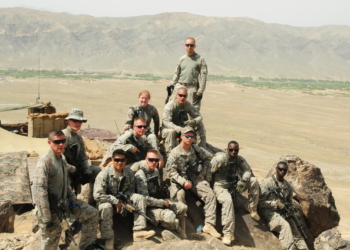“Loose lips sink ships.” This catchy phrase coined during World War II is an example of OPSEC, or operations security within the military community — and Air Force Master Sgt. Jason Dees believes it’s never been more important than now.
That’s because OPSEC is solely concerned with keeping critical information, however small, out of the wrong hands, especially within a military context.
“OPSEC is all about keeping people and information safe,” said Dees, the OPSEC signature manager at Shaw AFB in South Carolina. “It’s transformed a lot over the years with social media and technology, but the moral presence has always been about safeguarding what we don’t need out there and making sure both military members and family members understand the risk.”
So whether you’re a first-year military spouse or a seasoned troop on the verge of retirement, take these OPSEC tips to heart.
Buy into the concept: Dees often teaches the importance of the military spouse, especially surrounding OPSEC. If someone fully understands the implications of bad OPSEC behavior (delaying deployments, destroying missions or even injury or death) and commits to the opposite, chances of good OPSEC behavior skyrockets.
Attend your installation’s OPSEC briefings: These free “classes,” usually held at base support centers, are often chock-full of pertinent information to your troop’s specific branch, jobs, deployments, TDYs and locales.
Get involved: Dees recommends that all spouses join as many base clubs and groups as possible. “The tighter you are in your military community, the more avenues you have to keep you safe at home and with a network of people you can rely on if your spouse is not around,” he said.
Consider today’s world: Decades ago, OPSEC meant not discussing certain details like ship movements with people in person or via letters. Today it entails far more, like social media posts, texts, recordable phone calls, geodata from photos and weak or shared passwords.
Determine who needs to know: “You don’t want to give information to people who don’t need it, and not everybody needs to know what we know,” Dees said. That means that even if your grandma is excited about your soldier’s mission overseas, she doesn’t need to know exactly when, where or how.
Keep a tight lid on social media: No posting about dates, movements, casualties, equipment or other details, even through private messaging systems. If your spouse safely sends you photos while gone, don’t share them, as enemies could use a wide variety of information from it to plan something nefarious.
Talk to your children: Many kids have smart phones and do not understand the repercussions of OPSEC. Consider not only talking with them about it but also withholding important details so that they’re not tempted to pass them on.
Be picky and wary: Spies can easily befriend military spouses and gain access to bases and information. If someone new in your life, either in-person or online, seems very interested in military minutiae —asking to see flight lines up close, for instance, or requesting work details — listen to your gut and inform the proper authorities.
Stay vigilant: “OPSEC is never going to go away,” Dees said. “You have to think about it every day,” even if you’ve known about OPSEC for decades. To that end, he recommends politely helping fellow military spouse friends remember good OPSEC behavior with this sentence that can be customized to any situation: “Hey, I miss my family member and want them to come, too, but if we post things like this, they might come home late or even never come home.”
Read comments










































